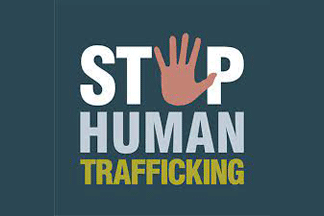World Day Against Human Trafficking
Event Category: All Events and Community Events
-
World Day Against Trafficking in Persons, observed on July 30 every year, is a holiday set aside for the sensitization of global citizens to the human trafficking pandemic. Human Trafficking involves recruiting, transporting, and possession of human individuals through coercion or other fraudulent means to exploit them for profit. Anyone can be a victim of this heinous act regardless of age or background, and human trafficking is present all over the world.
Human trafficking is a global pandemic that stemmed from the era of slavery and is still very much prevalent today. It can be defined simply as the unlawful act of transporting or coercing people to benefit from their work or service, which is typically in the form of forced labor or sexual exploitation. The act is a crime against the person because it violates the victim’s rights of movement through coercion as well as the fact that the victim is being commercially exploited.
Human trafficking particularly targets women and children, and may not always involve the movement of the person from one place to another. And though labor trafficking and sex trafficking are usually treated separately in the general trafficking discourse, one thing that victims of both forms of trafficking have in common is that their trafficking began with a migration to a seemingly better environment. The United Nations Convention for the Suppression of the Traffic in Persons and of the Exploitation of the Prostitution of Others was adopted in 1949 and came into effect in 1951. The convention was a legal turning point in human trafficking as it was the primary legally binding instrument on the subject.
As of today, only 66 countries have ratified the convention. The major reason for the low ratification rate is the hesitation of several countries to criminalize prostitution as stipulated by the Convention. Following the enforcement of the Convention, the international community adopted several (legally non-binding) instruments which directed the focus of human trafficking to (the trafficking of) women. One such instrument is The Beijing Platform for Action adopted by the Fourth World Conference on Women in 1995, which calls for the effective suppression of the trafficking of women and girls in the sex trade.
-
-

